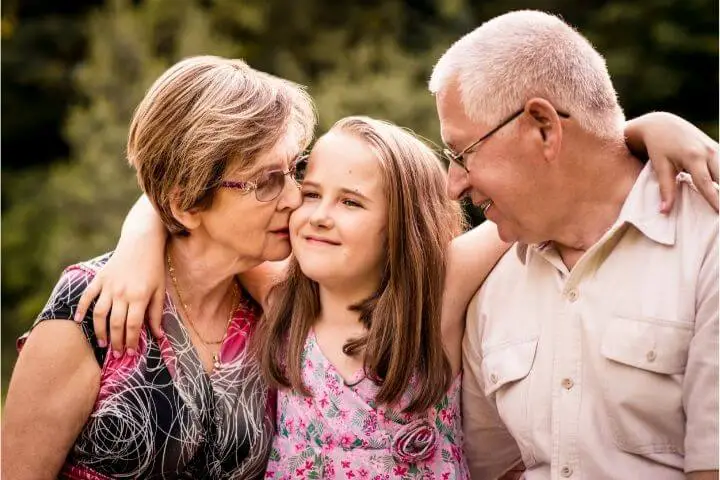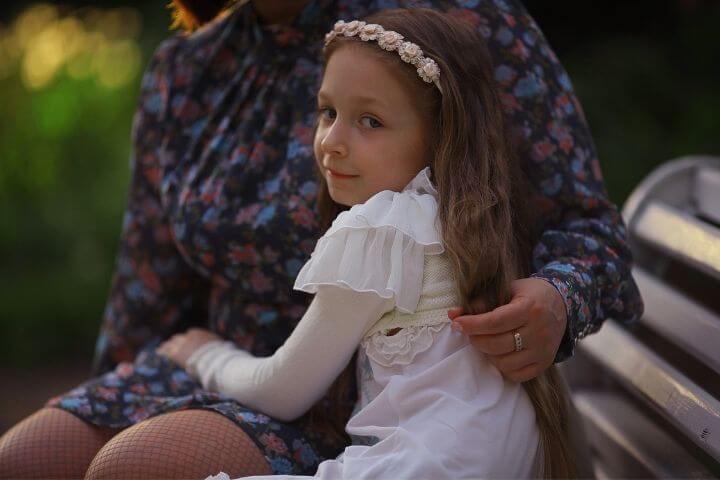There could be any number of reasons a grandparent obtains full custody of their grandchildren. At some point, the parents may want custody back of their children.

If you have been raising your grandchildren while their parents have been unable to do so you may be hesitant for their parents to take custody back.
This is completely understandable: you want the best for your grandchildren and you want to make sure they’re going to be ok with all their needs being met.
There are a few things that need to happen in order for parents to regain custody of their children from their grandparents after it’s happened.
Contents
First, Can Parents Get Custody of Their Children Back?
There is sometimes the thought that once a parent loses custody of their child, it will be impossible to get custody back. This is not always the case, though.
In the beginning, it can be decided amicably between the parents and grandparents that it is in the best interests of the children to move with their grandparents – for any number of reasons.
In that same way, when the right time comes it can be decided between the parents and grandparents that it’s now in the best interests of the children to move back in with their parents.
So it is possible to gain custody back – either amicably or not. There does need to be proof that the reasons it initially happened have been resolved and that it truly is in the best interests of the child to live with their parents again.
Do You Have to Go to Court to Get Custody Back From Grandparents?
The answer to this is not going to be the same for everyone, and it really depends on how your situation is going.
Getting custody of your child back from their grandparents can be done without going to court, of course.
Parents can approach the grandparents to open the lines of communication for discussing moving the children back to living with their parents.
It’s important to remember that not all family issues need to be resolved in court, so if both sides are open to discussing the matter and can amicably resolve it then you may be able to do this without lawyers and courts.

If communication between the parents and grandparents is not successful then there may need to be a mediator involved to help come to a resolution. The mediator will be independent and will listen to both sides to come to a solution. If you have a lawyer, then they can help you find a mediator to help.
What happens if the discussions between the parents and grandparents are not amicable? What do you need to do if you feel as though you need to get the courts involved? Here is how parents can start this process.
Proof of Substantial Change in Circumstances Affecting the Welfare of the Child
The reason this change in custody happened in the first place was because there was something affecting the welfare of this child.
Whether it was living arrangements, a parent being incarcerated or perhaps recovering from addictions. No matter the reason, the welfare of the child was in question.
When it comes to getting custody back, the burden of proof falls onto the parent to prove a substantial change has been made.
The proof must be relevant to the reasons in which the initial custody order was given.
You may be asking what constitutes substantial change? Well, the hard part is that this isn’t a black and white answer. Substantial change is subjective and can be determined based on the judge and the court deciding the matter.
Changes could include a new and stable job, spending more time with their children, or receiving treatment for any issues that may have been part of the original custody agreement.
It’s important to note that simply saying children do best with the parents is not enough to warrant a change when an official court order initially awarded custody to the grandparent.
Showing That Modifying the Arrangement Would Be In the Best Interests of the Child
The custody arrangement will always relate back to what is in the best interests of the child. It is not about the parents or grandparents.
Just saying that it’s best for the child to be with their mother or father is really not a good enough reason to consider uprooting the child’s life and having them move back with their mom or dad.
Even though it may seem like a natural thing for a child to be with their mother or father moving them from their grandparents back to their parents will significantly disturb their life and can have a big impact on their well-being.
If you have been able to provide the substantial proof of changes as mentioned above, you will need to be able to prove how these changes actually relate to being in the best interests of the child. It cannot just be that you have made these changes.

For example – if you have a new stable job with a fixed schedule you can prove that you will have much more dedicated time to spend with your child. A child will always benefit from being able to develop a healthy relationship with their parent and spending productive time with them.
No matter what the changes you’ve made are, you will need to be able to prepare the link between the changes and how it will benefit the life of your child and build the relationship you have with them.
What Do You Do if Your Child Wants to Leave?
Depending on the age of your child and the relationship you have with them, they may tell you that they don’t want to live with their grandparents anymore and want to come live with you.
While this may seem like the end of it – your child wants to live with you so problem solved, it’s a little more complicated than that.
Often times the bond between grandparents and their grandchildren will become so much stronger when they are the primary caregiver for them.
Sometimes, though, children will still want to live with their parents – regardless of whether it’s really in their best interest. They just want to be with their parents.
Try to refrain from allowing this to sway your actions. If there is a court ordered custody arrangement, having your children come to live with you would be in violation of this and could be considered kidnapping.
It will be hard, for sure, but try to let the process work and work within the limits you have.
As you go through the process and perhaps deal with the courts, the courts may take into account the wants of the child if they deem the child is mature enough to know and understand what they are saying.
The courts will always take into account the best interests of the child and make sure they are going to be well taken care of. No decision will be made simply because the parents want or feel they are ready to have the children back with them.
What if the Child Doesn’t Want to Leave?
We just touched on what to do if the child wants to just live with their parents and leave their grandparents house. But what happens if the opposite is true and they don’t want to leave?
Depending on the relationship the parent has had with the child, the child may not want to live with them and may want to stay with their grandparents.
The child may feel safer or like they have a better relationship with their grandparents. Alternatively, if the child has lived with the grandparents for a long time and never really knew their parents it may just be scary and unknown to them.

If the courts decide that the child should live with their parents, but the child doesn’t want to this can pose an issue with the transition.
It’s important to talk to the child about exactly why it is that they don’t want to go, and how it is they are feeling about it.
The courts will always make sure the welfare of the child is top priority – no matter how many changes you’ve made for your life.
If the child really does not want to live with their parents, the courts will take that into consideration as well.
It may begin with spending some more time with their parents and slowly transitioning to living fulltime with their parents.
It’s important to remember that there won’t be one solution that works for everyone. The right option will very much depend on what’s going on with your child and your life, including your living situation.
When the decision is made, it’s made with the best interests of the child in mind. Even if the custody arrangement does not go in your favor it’s going to be incredibly important for you to continue spending time with your child.
Building the relationship and developing that bond can really go a long way in your long-term relationship, even if you don’t live with them full time.
Provided you are able to visit with your child (or make sure you follow all court directed visitation rules), spend as much time with your child as is possible and comfortable for the child – especially if you didn’t spend a lot of time with them previously.
Over time, you may be able to review the custody arrangement and living with you may become in the best interests of your child.
